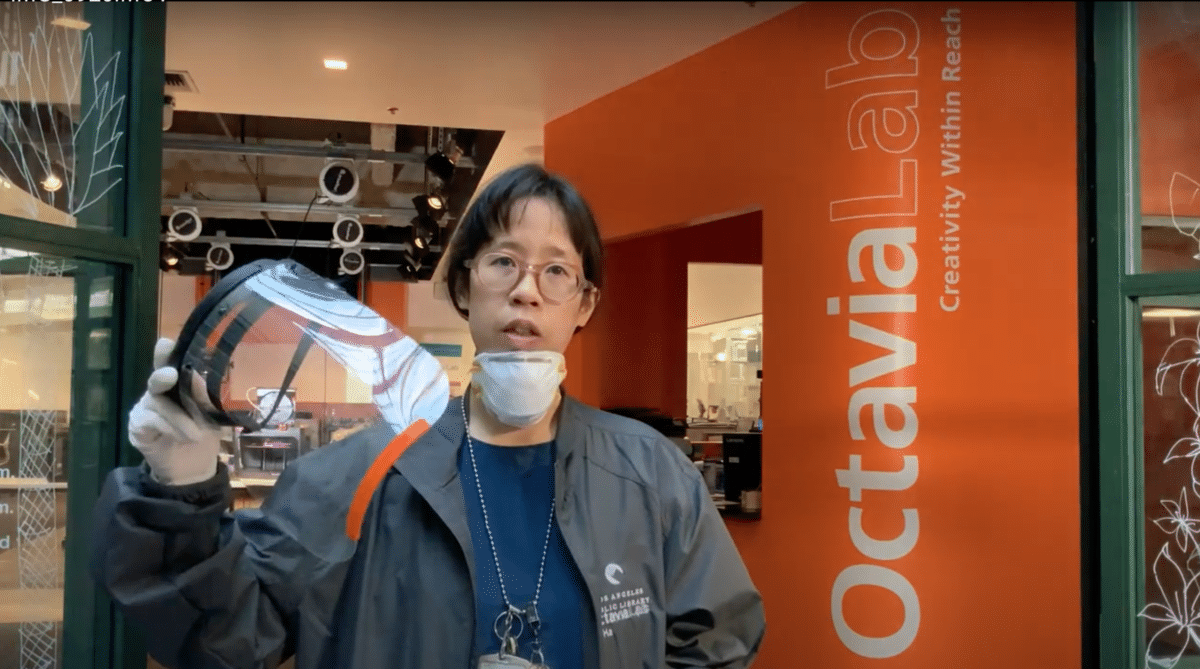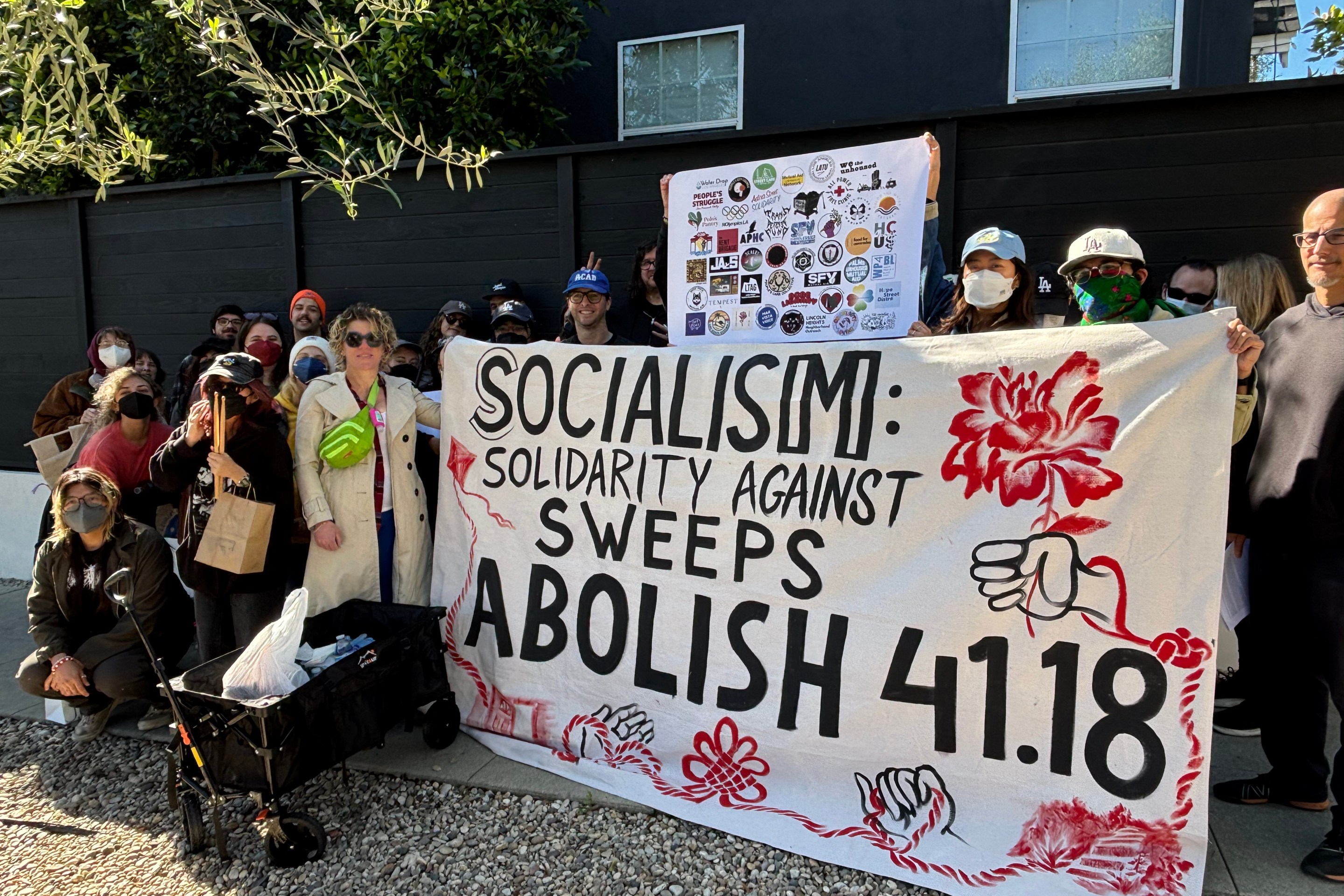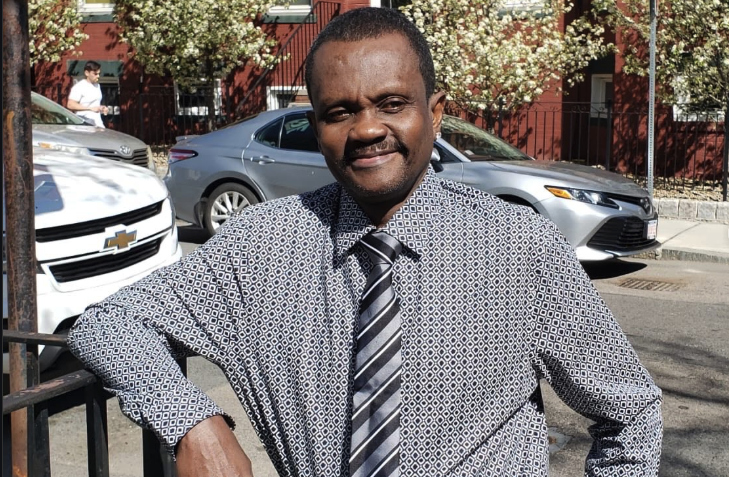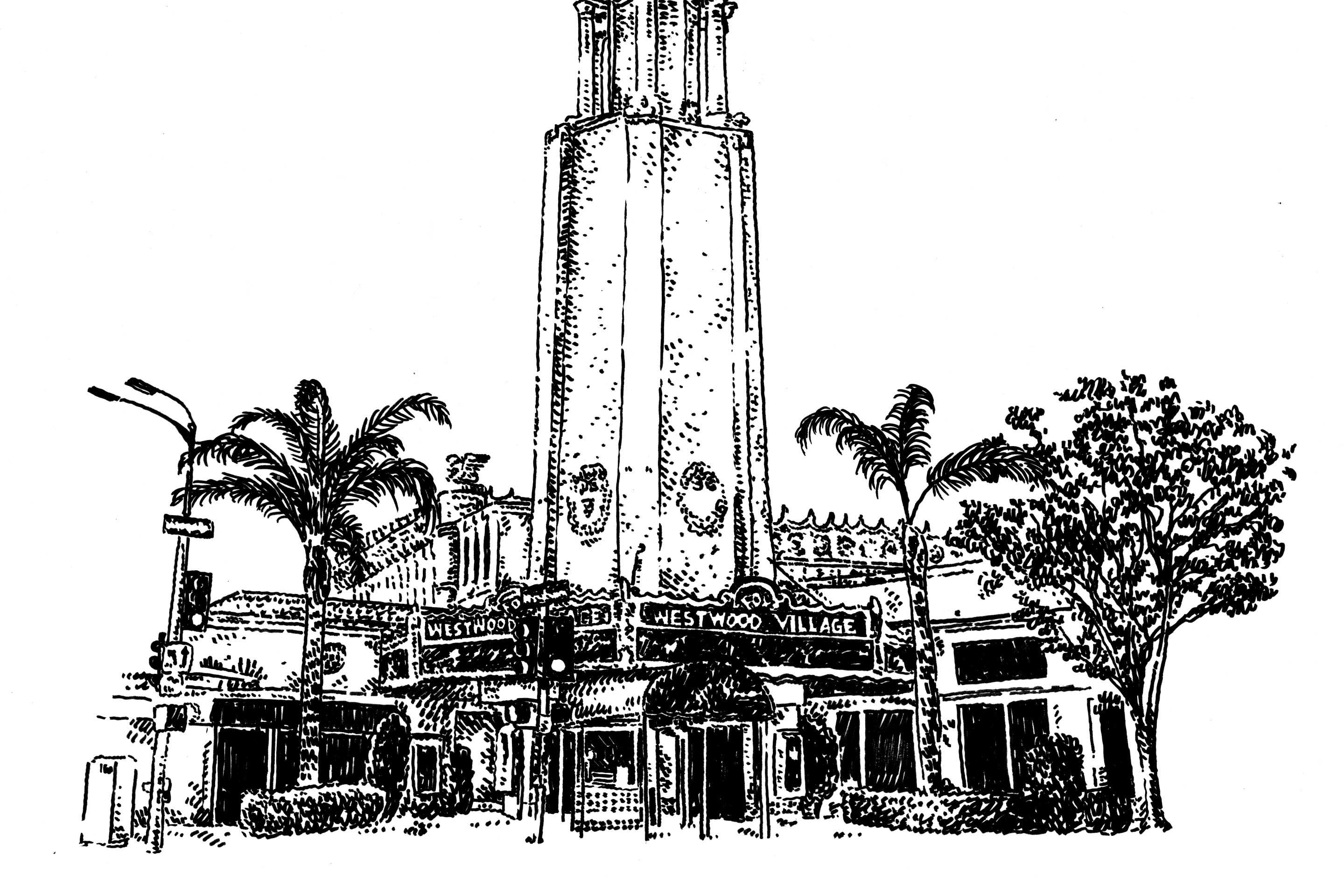[dropcap size=big]I[/dropcap]s there anything a librarian can’t do?
As we all collectively cope with life during the coronavirus pandemic, many are left wondering: How can I help?
For L.A.’s librarians who currently aren't working with the public since all libraries in the County are closed, this question has led to an innovative DIY approach to manufacturing one of the most scarce pieces of medical supplies in demand right now: Plastic face shields used by the medical communities to help treat the victims of Coronavirus. After all, librarians are no strangers to being professional helpers for 40 hours a week or more in public spaces
In the early stages of the pandemic when it became apparent there would be a potential shortage in medical supplies librarian Vi Ha recalls receiving emails from members of the public requesting the lab she manages to assist with the manufacturing of PPE (Personal Protective Equipment).
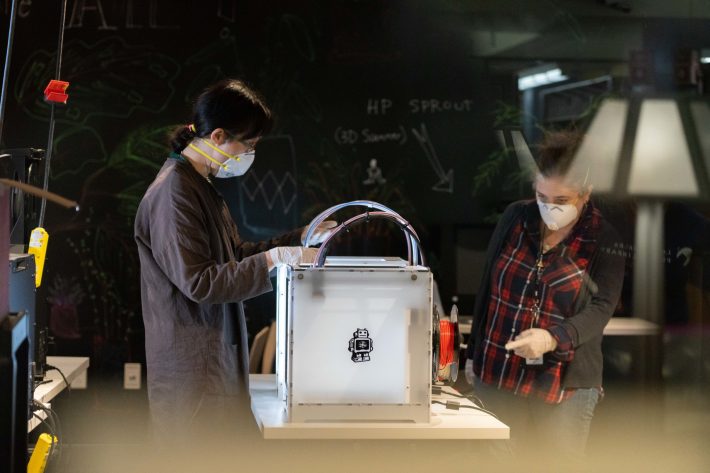
The Octavia Lab located in the Central Los Angeles Public Library, (named after sci-fi author and Southern California native Octavia E. Butler) is a DIY maker space which includes direct public access to everything from audiovisual equipment, sewing machines, laser cutters, as well as an arsenal of 3D printers.
Initially, all libraries were ordered to close. It wasn’t until LAPL’s top administrative staff started to receive queries from the Mayor’s office asking if they could lend its resources that caused everyone to make an exception for this particular library. The request also came with an opportunity to partner with the Los Angeles Clean Tech Incubator (LACI) whose Art District campus houses prototyping space along with a full machine shop to assist with the manufacturing to create plastic face shields.
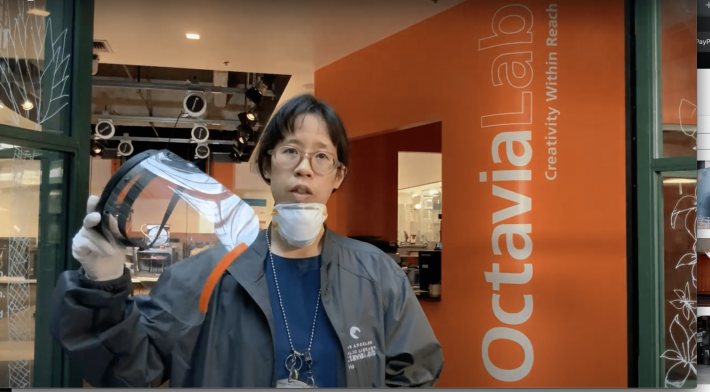
LACI’s primary function of working with entrepreneurs, policymakers, and non-profit advocates with the central goal of creating an inclusive green economy. They focus on startups initiatives centered around workforce development for disadvantaged communities. Speaking with CEO of LACI, Matt Petersen about the partnership with LAPL, “Our team was looking at things that we could help in the COVID crisis cause we do have $15 million dollars of equipment and software on the campus which normally cleantech entrepreneurs would be working on to figure out the solution to the climate crisis.”
These efforts are examples of why libraries are still relevant not to mention essential to every day, especially in a time of need.
“(LACI’s) ...ability to think through and solve a problem is going to be much better than what a hobbyist maker space is able to do. They were able to help us figure out how to talk to hospitals, how to get PPE approved, what material to choose from,” said Ha.
Using an open-source file from a 3D printer software company based in Prague, Ha and her team made up of other librarians and administrative staff was able to modify the program to fit the exact specifications of 3D printers. The pieces they were in charge of printing themselves are the headband to hold the plastic shield in place. In total, currently, the Octavia lab has a total of 12 printers, half of which are on loan from the Glendale Public Libary in order to meet the demand.
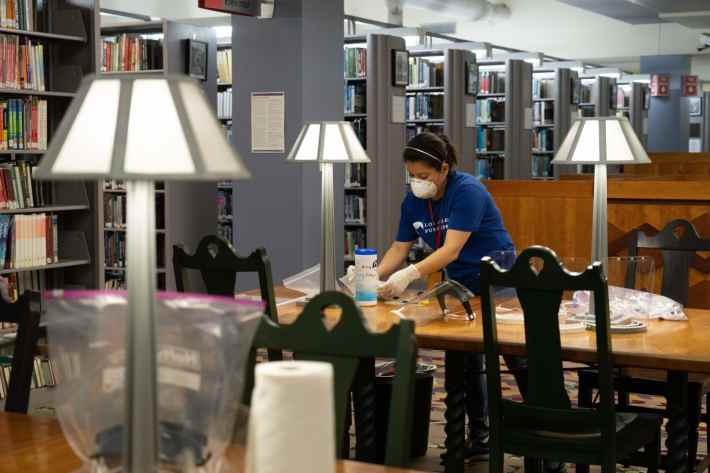
While the assembly of the components of the face shields is simple, the most challenging aspect is developing an efficient system to properly manufacture the PPE. “We are new at this. We are trying to figure out what the demand is going to look like and see what is actually sustainable and have the greatest amount of impact,” said Ha.
Having been in production just under ten days, running 24-hour print jobs, the Octavia Lab team have already delivered their first batch of the face shields to LAC+USC Medical Center with plans to deliver to other county hospitals in the Los Angeles area.
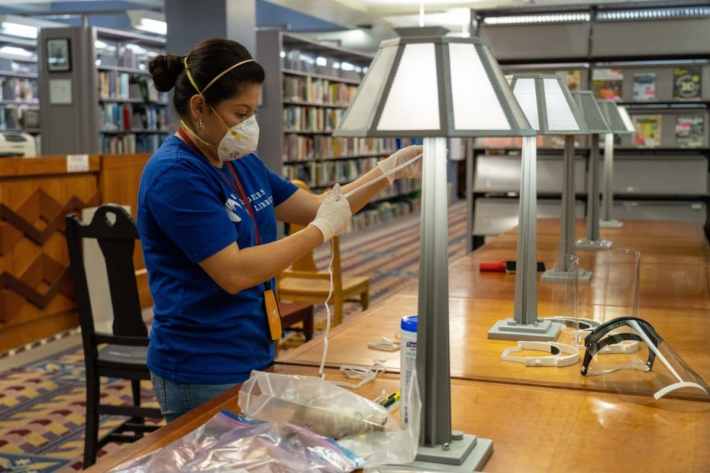
The lab is looking to collaborate with members of the public who are interested in contributing to the cause. Individuals who have access to 3D printers and are interested in donating parts or materials are encouraged to get in contact via email at Octavialab@lapl.org. “We strongly believe in sharing information, sharing knowledge and being hopeful, said Ha” These efforts are examples of why libraries are still relevant not to mention essential to every day, especially in a time of need.
“I feel that's part of my job to give people good information, help stay educated and informed and also build community, so that's kinda a big deal.”
